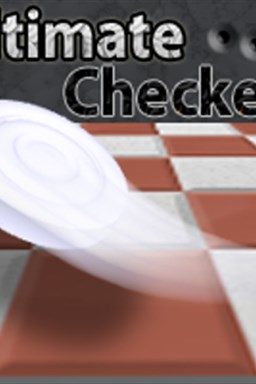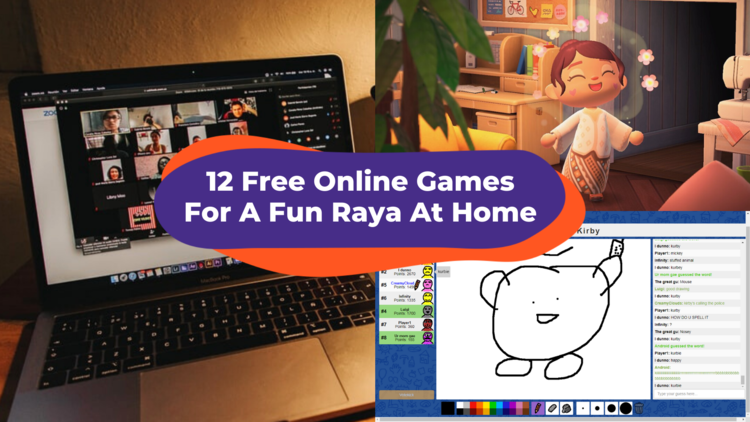Why Multiplayer Puzzle Games for Free Are Perfect for Team-Building Activities
Why Multiplayer Puzzle Games for Free Are Perfect for Team-Building Activities
Blog Article
Unlock Your Mind's Potential With Challenging Problem Games
Testing challenge games offer an intriguing possibility for boosting cognitive function and mental acuity. These brain-teasers, varying from logic-based quandaries to elaborate jigsaw problems, not just supply enjoyment but additionally promote crucial thinking and hone analytic skills. As one browses through these psychological challenges, the potential for boosted memory retention and increased focus to detail comes to be apparent. The true effect of these video games on cognitive advancement may prolong much beyond simple entertainment. What specific advantages can they offer in the realm of day-to-day thinking and decision-making? This concern warrants better expedition.
Benefits of Problem Games
Engaging in puzzle games offers a wide variety of cognitive advantages that expand past simple enjoyment. These video games boost numerous cognitive procedures, boosting mental skill and problem-solving skills. Regular participation in puzzle-solving activities can enhance memory by urging the mind to create links and preserve info. This is accomplished with pattern recognition and the mental manipulation of concepts and shapes, which are essential aspects of numerous puzzles.
Additionally, challenge games boost focus and focus to information. As players submerse themselves in fixing complicated problems, they create the ability to concentrate for prolonged periods, a skill that is transferable to real-world circumstances. In addition, puzzles frequently call for a tactical approach, promoting critical reasoning and the ability to analyze circumstances from multiple perspectives.

Kinds Of Challenging Puzzles
Problem games come in a diverse range of types, each offering special difficulties that cater to various cognitive skills. These challenges range from the traditional to the modern-day, engaging gamers in different means. One of the most preferred types is the logic puzzle, such as Sudoku, which needs deductive reasoning and pattern recognition. These problems challenge the player to fill in missing components based on offered restraints, cultivating essential thinking.
One more category is the jigsaw challenge, which faucets into spatial understanding and aesthetic perception. By assembling together little sectors to form a total photo, gamers improve their capability to picture and rotate items psychologically. Crossword problems, on the other hand, are language-based, challenging individuals to recall vocabulary and basic synonyms, therefore exercising verbal abilities and memory.
Furthermore, there are mechanical challenges, like the Rubik's Dice, which require tactical planning and hand-eye control. These puzzles need a series of moves to reach the preferred end result, urging players to assume numerous steps ahead. In addition, electronic problems, such as escape room games, integrate different components of reasoning, spatial thinking, and team effort in a virtual setting, offering an extensive difficulty that promotes several cognitive professors at the same time.
Improving Cognitive Abilities
The advantages of problem video games expand beyond amusement, serving as useful devices for improving cognitive skills. Involving routinely in these mentally revitalizing activities can considerably sharpen numerous psychological professors, such as analytical, memory, and interest to detail. Puzzle games require gamers to believe seriously and purposefully, promoting an environment where abstract reasoning is necessary. This duplicated exercise of psychological dexterity boosts neural connections, advertising cognitive adaptability and versatility.
Furthermore, puzzle games play a pivotal duty in boosting memory retention. In addition, puzzles typically demand sustained attention and focus, which can boost focus abilities over time.
Furthermore, the problem-solving aspect of challenges encourages creativity, as gamers discover to come close to obstacles from different angles. This ability is particularly indispensable in dynamic job settings, where ingenious solutions are commonly needed. In general, puzzle video games contribute in cultivating a sharper, more nimble mind.
Choosing the Right Game
Selecting the appropriate challenge video game is crucial for making the most of cognitive advantages. Various problem games target various cognitive skills, such as analytic, memory, spatial reasoning, or logical reasoning.

Additionally, considering your personal interests can sustain inspiration and interaction, which are important for long-term cognitive development. A game that useful link straightens with your pastimes or enthusiasms will likely hold your passion longer, ensuring constant cognitive exercise. Ultimately, picking a video game that lines up with both individual passions and cognitive goals will generate the most helpful end results, promoting a engaging and productive mental workout.
Tips for Taking Full Advantage Of Benefits
Consistency is key; normal interaction with challenge video games can lead to sustained cognitive benefits. Branching out the kinds of puzzles you play-- such as crosswords, Sudoku, or logic challenges-- stimulates different cognitive abilities and stops psychological stagnancy.
Furthermore, gradually increase the trouble degree of the challenges. Beginning with less complex challenges and progressively taking on more try this out difficult ones can improve problem-solving abilities and cognitive durability. It is likewise advantageous to take part in reflective method; after finishing a puzzle, take a minute to analyze the strategies you employed and consider alternative approaches. This reflection can deepen your understanding and improve future efficiency.
Conclusion
Including challenging challenge games right into daily routines offers significant cognitive benefits, boosting psychological acuity and analytic capacities. By involving on a regular basis with a selection of puzzles, such as logic jigsaws, video games, and crosswords, individuals can enhance memory retention and essential thinking skills.
Challenging challenge games provide a fascinating possibility for improving cognitive function and mental skill.Problem video games come in a varied selection of kinds, each offering special obstacles that provide to different cognitive skills.The advantages of challenge games extend past enjoyment, serving as important tools for boosting cognitive abilities. Different challenge games target different cognitive skills, such as analytic, memory, spatial thinking, or sensible thinking. Diversifying the kinds of puzzles you play-- such as crosswords, Sudoku, or logic problems-- boosts different use this link cognitive skills and protects against mental stagnation.
Report this page